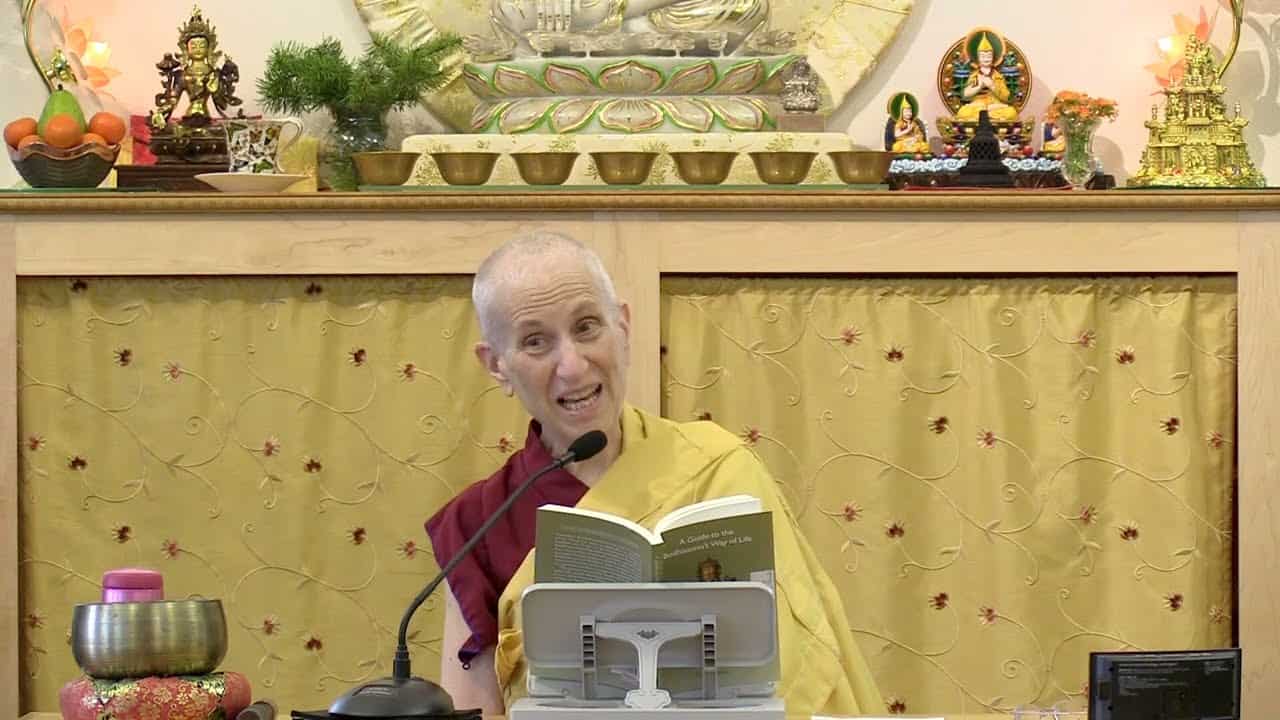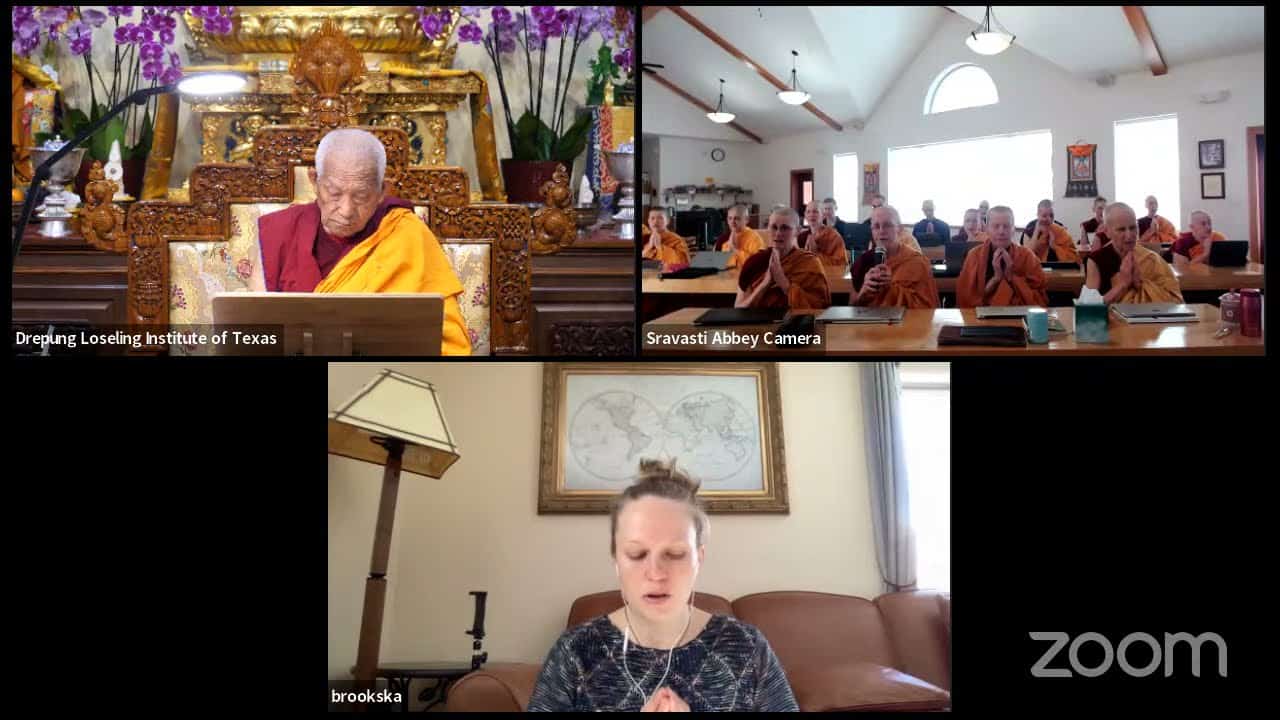Craving and clinging
53 Samsara, Nirvana, and Buddha Nature
Part of an ongoing series of teachings (retreat and Friday) based on the book Samsara, Nirvana, and Buddha Nature, the third volume in The Library of Wisdom and Compassion series by His Holiness the Dalai Lama and Venerable Thubten Chodron.
- Difference between having attachment and having preferences
- Craving for sense pleasures
- How sensory inputs lead to feelings
- Craving for existence or non-existence
- Absolutist view or nihilistic view
- Clinging and process of taking rebirth
- Clinging to sense pleasures
- Pleasure or pain due to the feeling
- Clinging to views
- Views of extremes, wrong views, holding wrong views as supreme
Samsara, Nirvana, and Buddha Nature 53: Craving and Clinging (download)
Contemplation points
- Watch what sense pleasures and memories arise day by day. Note that craving for sense pleasure also includes praise and reputation since we can’t experience those apart from the senses. Spend some time with this. What are ways in which you crave praise and reputation? Why do you crave them? How do these relate to your senses? What happens in your mind when perceiving it?
- Bring to mind a memory of a pleasurable experience. Is the pleasure from the memory, was it from the experience itself, or was it from the expectation of the experience?
- Describe the craving for existence and the craving for nonexistence in your own words. How have you seen these in your own life and/or in the world. How do each of these hinder Dharma practice?
- The space between feeling and craving is a weak spot in the twelve links. If we can learn to experience pleasant and painful feelings without reacting to them with craving, we can cease the production of formative karma. Observe how easily and habitually each type of craving arises in response to a particular feeling. Practice simply experiencing the feeling without craving for it to last longer or cease immediately. Cultivate wise equanimity, not ignorant indifference, to feelings.
- What is the difference between wise equanimity and indifference?
- Is being attached to something really happiness? Take some time with this. Bring to mind things or people you are attached to. Does attachment really lead to happiness? How do craving and clinging contribute?
- How does craving influence the death process?
- What are the first two types of craving that can arise during our lifetimes and how do each bring about harm to ourselves and others?
- What kind of emotions arise when you are actively craving something?
Venerable Thubten Chodron
Venerable Chodron emphasizes the practical application of Buddha’s teachings in our daily lives and is especially skilled at explaining them in ways easily understood and practiced by Westerners. She is well known for her warm, humorous, and lucid teachings. She was ordained as a Buddhist nun in 1977 by Kyabje Ling Rinpoche in Dharamsala, India, and in 1986 she received bhikshuni (full) ordination in Taiwan. Read her full bio.


